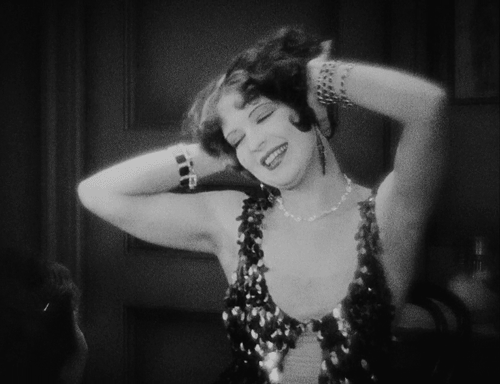Photo
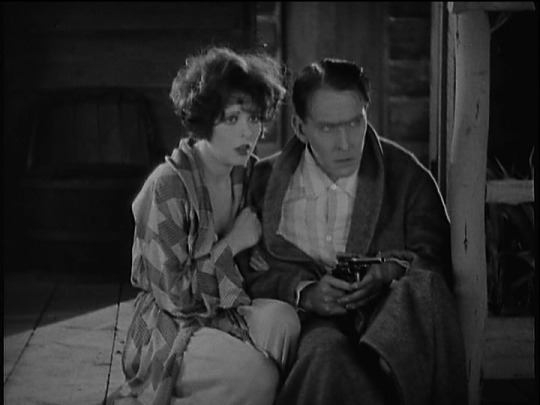
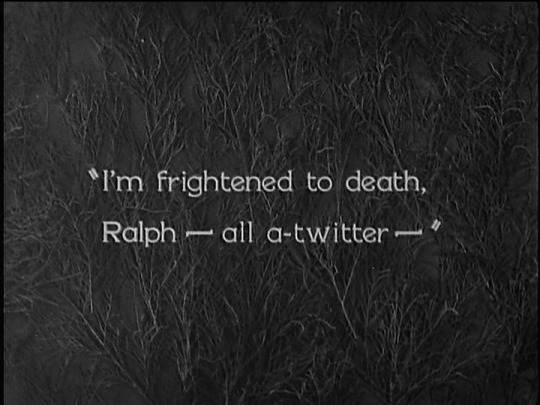

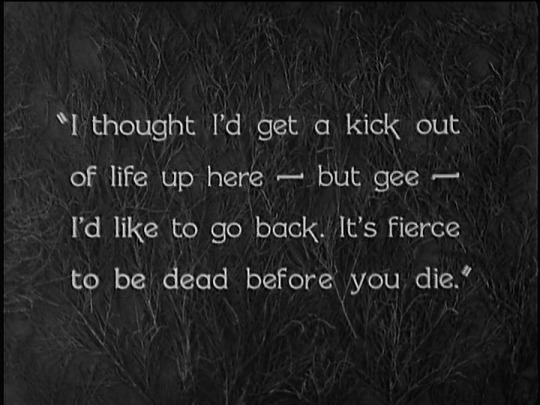
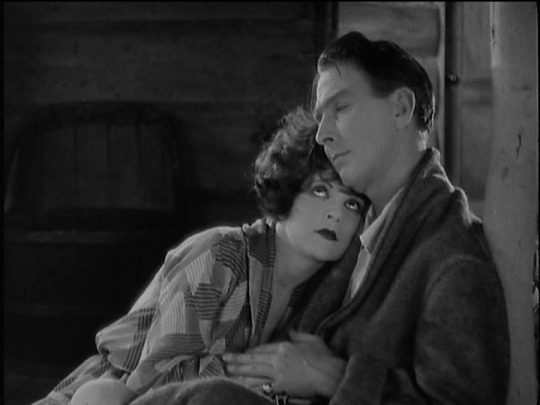
“It’s fierce to be dead before you die.” ☆ Clara Bow ☆ Percy Marmont ☆ “Mantrap” (Dir. Victor Fleming, 1926) ☆
122 notes
·
View notes
Photo

“Clara Bow testified today at hearing which freed Robert S. Savage of insanity charges in ‘suicide bluff’ to win her love. Miss Bow and Michael Cudahy, a witness, appear above.” c.1926
Robert S. Savage, son of Duluth, Minnesota steel millionaire, was a football hero at Yale; he was known as a man who never lost his head at a crucial moment. Now that he is out on what the preachers of baccalaureate sermons are fond of calling the “gridiron of life” he is becoming famous as a man who is always losing his heart. This tendency to fall deeply and frequently in love would not be so menacing to young Mr. Savage’s life and so alarming to his friends if it were not for the unfortunate fact that he takes all his love affairs very seriously and is tremendously heart-broken when the beauty he has set his heart on won’t have him. The latest object of Mr. Savage’s devotion was Clara Bow, the young Hollywood film actress. When she refused to marry him after a five days’ ardent courtship he slashed his wrists with a razor blade and behaved in other ways so strangely that his friends had his sanity inquired into. Savage has never forgotten his love for Geneva Mitchell, the young Broadway stage beauty with whom he fell in love as she danced across the stage one night and a few hours later hurried away to an early morning marriage. This love match was quickly annulled on the ground that Miss Mitchell was too young to enter into a legal matrimonial contract. This was tho first real heart-break tor the former football star. He buried himself in the wilds of Alaska for a year in the hope of forgetting the charms of the bride he had lost but it just couldn’t be done. To this day wherever he goes he is continually searching the faces of the pretty women he sees for some signs of a resemblance to his beloved Geneva. It was because he thought he saw such a resemblance in Clara Bow that he became so enamored of the film actress. Mr. Savage got his first glimpse of Clara Bow’s piquant face when he saw her on the screen at a movie theater. He turned to the college chums who sat beside him and exclaimed: “That’s the girl of my dreams! She’s another Geneva Mitchell–and I’m going to marry her.” When his friends looked and laughed their incredulity at this statement the young man earns back at them with this: “You don’t believe it? Well, I’ll tell you what I’ll do just to make it a sporting proposition–I’ll bet you $100 that I can win her promise to marry me within a week after our first meeting.” A wager was made and to show how perfectly serious he was about the whole matter Savage the next morning boarded a train bound for the Pacific Coast and Hollywood. His friend, Frank Gay, the motion picture director, was at the station to meet him and through Gay’s help he quickly arranged for an introduction to Clara Bow. And then the love race which Mr. Savage thought could be triumphantly ended within a week was on. The fact that Miss Bow was reported engaged to Gilbert Roland, the film actor, did not bother Savage in the least. This was to be a courtship that would leave all other contenders gasping for breath, no matter how secure the hold any one of them might have on the movie star’s heart. Their introduction was followed by a furious round of visits to the most popular cafes and dancing clubs of Hollywood and Los Angeles. Within two days Savage was beginning to whisper words of love in Miss Bow’s pretty ear and hinting broadly at marriage. It was then, as the actress later testified, that she began to fear the young man was taking their short acquaintanceship too seriously and sought a little respite from his persistent attentions. This action on her part precipitated the “love poem” stage of the wooing. Savage retired to the seclusion of his hotel suite and used up quires of the hotel stationery in writing verses designed to make the actress look with favor on his suit. The first of these effusions was called “My Serenade” and was dedicated to that little imp, Clara Bow. It started out like this: “You lovely thing, I like to sing Of love and such to you. Such fetching maid, I’d serenade With fervent ardor true; And yet to me No balcony Could ever satisfy The poet’s art that from the heart To you in song I’d cry.” Several other similar pieces of poetry seemed to have the desired effect on the “flaming flapper” of the screen, as Clara Bow is known. She invited him to spend the evening at her bungalow. At Miss Bow’s suggestion they went to the back porch and seated themselves in the hammock. They thought they were alone there in the California moonlight but, as was revealed later at the sanity trial, they were being spied on by Gus Patterson, Savage’s best friend. What Patterson saw and heard was as exciting a “petting party” as was ever described in a California court room. And through it all, according to Miss Clara Bow, the film beauty who patiently listened to Mr. Savage’s impassioned love poems, gave him (so he says) several “blistering” kisses and then broke his heart by saying that she did not care to become his bride. His testimony, Clara Bow WAS the active aggressor in the love making. The witness was particularly impressed with the quality of the kisses which he said the young woman pressed on Savage in great number. He described them as “blistering”.“She kissed him so hard,” he testified, “that his lips were sore for two days. He could hardly eat.” Clara Bow denied the “blistering” kisses and the other details of the hammock petting party as described by Patterson, but when Savage took the witness stand he reluctantly corroborated his friend’s testimony. Those hours in the hammock on the bungalow porch made Savage all the more eager to win and marry the “young woman he had bet he could win in a week.” His much kissed lips pained him with a pain that was really a pleasure for the love sick young man to bear and perhaps it was this pain that suggested the idea of using some vigorous cave man tactics in his wooing. The next day Savage and Clara lunched together. A leisurely drive through Beverly Hills followed, during which the young man pleaded his suit. As a result the drive ended at the office of a Los Angeles lawyer, who was asked for expert advice in the matter of obtaining a marriage license. With the necessary information the pair emerged from the office building only to find a traffic policeman beside their car. They had parked in a forbidden zone. A lengthy argument ensued and by the time they had made their peace with the “law” it was nearly five o'clock, closing time for the marriage license bureau. They reached the office just five minutes too late. “Because I thought there was no time like the present to convince her I told her I was going downtown to get a license,” explained Savage later. “Maybe she thought it was a joke, but I was in earnest. It was all my own idea. I told her that if we got the license then I could do my 'convincing’ stuff later by dragging some minister out after her. Getting a license is half the battle–you can’t do much without one.” But Clara branded the whole thing a joke. “I only met him three days ago,” she said. “It’s ridiculous.” Then Savage’s poetic urge found expression in a poem entitled “To Clara,” the closing lines of which were as follows: “In Alaskan lands a cabin stands. On the banks of a rivulet Where we will go, sweet Clara Bow, And seek and love and get That olden tryst that in life we’ve missed, And then we’ll happy be–With the moonlit night, the pale star light, The stream–just you and me.” Two nights later Savage was found lying on a couch - both wrists slashed deep with a razor, the blood dripping onto a large picture of Clara Bow that lay on the floor. Rushed to a hospital nearly dead from loss of blood, he attributed his attempted suicide to Miss Bow’s refusal to yield to his love pleadings and marry him. “Of course, I am terribly sorry such a thing should happen,” said Miss Bow, when word of her suitor’s act reached her. “Mr. Savage is a very nice boy-just a trifle impulsive and a little too temperamental. I only knew him less than a week. He tried to sweep me off my feet with his speed. The first thing I knew he was proposing marriage and driving me down to the courthouse to get a marriage license. I simply laughed at him. He says he tried to commit suicide because I turned him down–'gave him the gate,’ he calls it. Let me tell you this–when a man tries to kill himself over a woman he doesn’t cut his wrists with a safety razor blade and then drape himself over a couch. No, they don’t do it that way. That might work out all right in pictures, but men don’t think of dramatics when they kill themselves. They use a pistol. Then those poems of his. Really he is wonderful in that respect. I am wild over poetry and he knew it, but as far as being In love with him–somebody tell another funny one! All I can say about Bob is–that as a lover, he is a wonderful poet.” But from Savage as he gazed at the bandages on his wrists came a renewed avowal of his love. “I hope to tell you I tried to kill myself” he said. “I am simply wild over Miss Bow–never loved a girl so much in all my life. Say, she may say a real man would shoot himself, but believe me, it takes a lot of nerve to cut your wrists and then watch the blood flow. Why, the doctor who sewed up my wrists said if they had been fifteen minutes later in getting me to the hospital I would have passed out of the picture. And then she says I didn’t have nerve. Just wait until I get out of the hospital. I’ll show Miss Bow I have plenty of nerve. You see it was like this. I was out with some of my Yale fraternity brothers. We had been to a movie in which Clara Bow appeared. I made a bet with the fellows that in just one week I could make her love me. Well, a mutual friend introduced us. I fell head over heels in love with her in barely two days’ time. I thought she returned the love but I guess she didn’t. She threw me down cold and I was desperate.” At the inquiry into Savage’s sanity Clara Bow testified that it was out of the question for her to think of marrying Bob Savage because he possessed the very thing she hated most of all in a man–an “ego complex.” The judge and the learned alienists composing the lunacy commission were puzzled to know what she meant by this and asked her to define the phrase. “A person with an ego complex,” explained Clara Bow, “is one who thinks like Robert S. Savage, who has so alarmed his friends by his unfortunate tendency to take his love affairs too seriously that everything they do and everything their family does is of paramount importance. It is what makes a spoiled boy, such as Mr. Savage is.” Within forty-eight hours after she met Savage, the actress informed the court, he was urging her to accompany him to the marriage license bureau. She said she repeatedly told him that she didn’t love him and would never marry him but this had no effect in stopping his pursuit of her. Savage finally became very much of a caveman, the pretty witness declared, and spoke harshly to her saying: “I can make you love me after we are married. I don’t care if you are engaged to another man. My name is Savage and I take after my name.” After all the evidence concerning Savage’s extraordinary love affair the lunacy commission pronounced him sane. The luckless lover breathed a deep sigh of relief at this verdict and cast one last long look at the “flaming flapper” who sat a few feet away. “What a sap I have been,” said Savage as he made his way out of the crowded court room, “what a world champion sap!” And when the alienists composing the lunacy commission heard those words they felt more certain than ever that they had been right in pronouncing the young man sane.
[source: The Ogden Standard Examiner, July 1926]
47 notes
·
View notes
Text

Natalie Wood in her dressing room during the filming of Gypsy.
1962🕰️
#femcel#female beauty#old hollywood#natalie wood#1950s history#1920s#1960s hollywood#1920s hollywood#1930s hollywood#1950s hollywood#1920s fashion#1960s#1950s#judy garland#marilyn monroe#madge bellamy#gypsy#gypsy rose lee
76 notes
·
View notes
Text

Judy Garland with Terry the cain terrier who played ‘Toto’ in The Wizard of Oz.
While being credited as just “Toto” in The Wizard of Oz, Terry started appearing in films as early as 1934 alongside Shirley Temple in Bright Eyes.
Although breaking her foot on set after a winkies guard had accidentally stepped on her, she still managed to recover by staying with Garland in her home for two weeks. Judy had asked her owner permission to adopt Terry after developing an attachment, however she was told no.
Terry went on to also appear in films like “Bad Little Angel” and “The Woman”. She made 16 film appearances between 1934 and 1945 before passing away at age 11 in September of that year.
#female beauty#femcel#the wizard of oz#old hollywood#judy garland#toto#madge bellamy#marilyn monroe#silent movies#mickey rooney#liza minnelli#1950s history#1920s#1960s hollywood#1920s hollywood#1930s hollywood#1950s hollywood#1920s fashion#1960s#1950s#doris hill#silent film#clara bow
45 notes
·
View notes
Text

Doris Hill, Myrna Loy and Jane Winton having a beach day.
1926🕰️
#femcel#female beauty#old hollywood#1950s history#1920s#1930s hollywood#1960s hollywood#1920s hollywood#1950s hollywood#1920s fashion#1960s#1950s#the wizard of oz#madge bellamy#marilyn monroe#judy garland#silent film#silent movies#talkies#doris hill#myrna loy#jane winton
27 notes
·
View notes
Text

Judy Garland and her daughter, Liza Minnelli
1946🕰️
#femcel#female beauty#the wizard of oz#old hollywood#judy garland#mickey rooney#marilyn monroe#1950s history#1920s#1960s hollywood#1920s hollywood#1950s hollywood#1920s fashion#1960s#1950s#1930s hollywood#madge bellamy#liza minnelli#kay francis#cabaret
37 notes
·
View notes
Text

Madge Bellamy in the pre-code film White Zombie.
1932🕰️
#femcel#female beauty#old hollywood#the wizard of oz#roaringtwenties#mickey rooney#roaring 20s#judy garland#marilyn monroe#clara bow#kay francis#madge bellamy#1950s history#1960s hollywood#1920s hollywood#1950s hollywood#1920s fashion#1920s#1960s#1950s#1930s#1930s hollywood
107 notes
·
View notes
Text

Clara bow and Kay Francis in the pre-code film Dangerous Curves.
1929🕰️
#femcel#female beauty#old hollywood#the wizard of oz#judy garland#mickey rooney#marilyn monroe#clara bow#kay francis#1960s hollywood#1950s hollywood#1950s history#1920s hollywood#1920s fashion#1920s#1960s#1950s#roaringtwenties#roaring 20s#flapper girl
22 notes
·
View notes
Text

Judy Garland applying makeup in her dressing room at the Greek Theater.
1957🕰️
#femcel#female beauty#old hollywood#roaringtwenties#roaring 20s#1920s hollywood#1950s#1960s#judy garland#marilyn monroe#mickey rooney#the wizard of oz#dorothy gale#1950s history#1950s hollywood#1960s hollywood
13 notes
·
View notes
Text
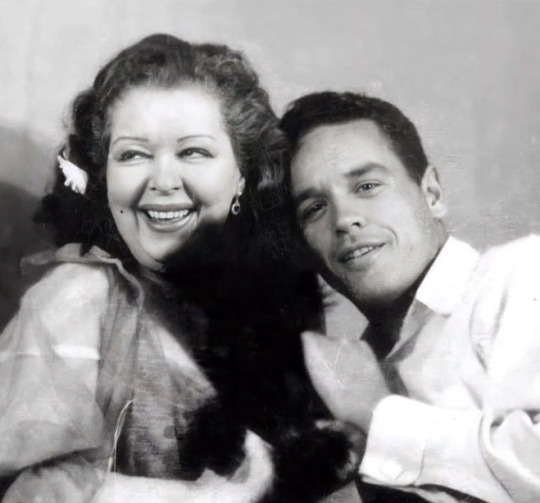
Newly released Photo of Clara Bow and her son 。・:*˚:✧。
#femcel#girlblogging#female beauty#clara bow#silent film#roaringtwenties#roaring 20s#1920s hollywood#1920s fashion#1920s
3 notes
·
View notes
Text

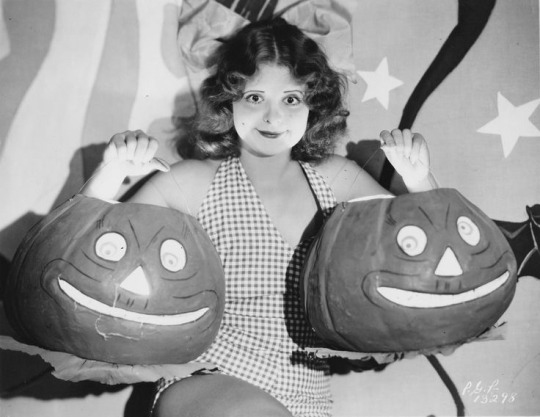
Clara Bow’s halloween shoots <3
#femcel#female beauty#clara bow#roaringtwenties#roaring 20s#1920s hollywood#1920s#marilyn monroe#1920s fashion#silent film#old hollywood
6 notes
·
View notes
Text

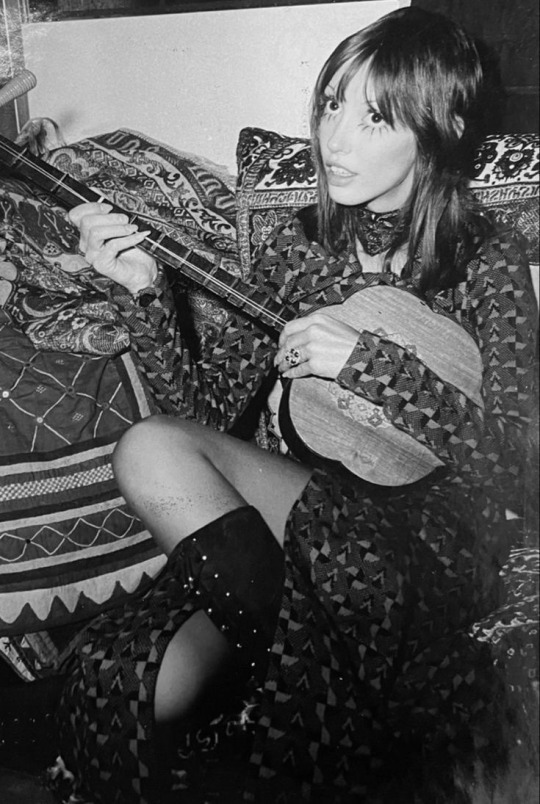

Shelley Duvall 🎀
1949 - 2024
#female hysteria#female manipulator#female rage#gaslight gatekeep girlblog#girlblogging#this is a girlblog#fawncore#female beauty#femcel#lgbtq#wlw love
11 notes
·
View notes

